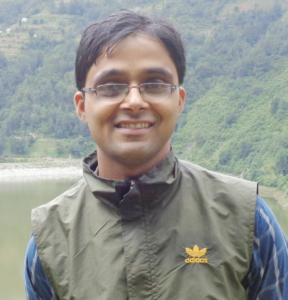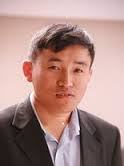

Introduction
The purpose of this article is to discuss the identity construction of teachers in higher education in Nepal, particularly in Tribhuvan University (TU). The article is based on our research on the narratives of teachers working in TU. We focus on how teacher identities are shaped by the existing broader socio-political context and the hierarchical structural arrangement of the university. Our arguments in this article are informed largely by the sociocultural perspective of teacher identity. This perspective considers teacher identity as a phenomenon which evolves in interactions with external and internal factors sharing their assumptions, positionings and sense of belongings. We are particularly interested in unravelling the professional trajectories of junior faculty members, known as lectures, working in TU. Due to space limitation, we are unable to include complete narratives, but we have tried to cover the most striking experiences that the teachers have shared with us during our in-depth interviews.
Understanding Teacher Identity
Teacher identity remains as one of the major aspects of teaching professional development (e.g., De Costa and Norton, 2017). How teachers define their own selves and how their selves are defined by others play a critical role in shaping their professional identities. Understanding teacher identity is important for two reasons: a) it helps us identify the state of teachers’ job satisfaction and their commitment to the profession; and b) the knowledge of teacher identity construction provides a framework to understand the institutional culture that shapes teachers’ professional trajectories. Teacher identity is not a fixed entity; rather it is a dynamic and evolving experience that involves complex interactions between both internal and external factors.
Thomas and Beauchamp (2007) argue that professional identity stands at the core of the profession and thereby provides the framework for teachers in the construction of their own ideas of “how to be” and “how to act” as a teacher (p. 230). The importance of identity is also highlighted by Palmer (2007) who notes that a strong sense of identity is the trait common to all good teachers. As he argues, our teaching experiences reveal who we are and that “teaching holds a mirror to the soul” (p. 3), adding that we cannot know our students until we know ourselves. In our teaching, continues Palmer, “We teach who we are” (p. 2). De Costa and Norton (2017) argue that both individual and psychological factors shape the self-image and other-image of particular teachers. For them, teacher identity is shaped by institutional cultures, structures, and values.
Methodology
The identities of teachers we have discussed in this paper are based on the analysis of narratives from six teachers from TU, who are anonymized as Teacher A, B, C, D, E and F. The participants are mostly the lecturers who are at the bottom of the professional hierarchy, according to the university’s rule. In order to collect the data, we had in-depth interviews with each participant. We also had informal conversations with the participants. All the interviews were audio-recorded and transcribed for the purpose of analysis. In addition, we also took field notes of events and activities that the participants took part in. In the remainder of the paper, we discuss major identity-related data under two different themes.
New culture and new identity
The participants in this study reported that ‘a new culture’ has emerged in the universities in Nepal. The new culture the teachers describe is the ‘bhaagbandaa’ (share) culture. One of the teachers (Teacher A), for example, said that ‘accept or not we have ‘bhaagbandaa’ in our university’. He explains that bhaagbandaa has been ‘the core system in TU […] is run by bhaagbandaa […] all officials are appointed on the basis of their affiliation to the political parties.” He argues that “if the appointments are made on the basis of party politics, then academic identity is not important here [university].” In the case of Tribhuvan University, the faculty members are divided into different groups such as ‘Democrat Teachers’ and “Progressive Teachers’. The democrat teachers’ group is the sister organization of Nepali Congress while progressive teachers’ group is affiliated to Nepal Communist Party. These teachers’ groups have organizations at the national and local campus level. As Teacher A shares, these groups have membership of their respective political party and follow what their party leaders ask to do. Teacher D reveals the reason behind university teachers being a member of a political party and unionized as party members. She shares that “teachers become a cadre to get niyukti (appointment) in different positions such as campus chief, Dean, directors, rectors, registrar, VC.” She reveals that “appointments in academic positions are shared among the teachers who belong to the party groups.”
The new culture of governance in the university has seriously affected the teachers’ professional identity. As Teacher C tells, university teachers are now “recognized by their affiliation to the party groups, but not by their academic work.” What is more interesting is that the teachers who lead the party-based organizations are considered ‘powerful’ and ‘hartaakartaa’ (decisive/influential), as Teacher C says, in the university. He further says that the teachers who lead the party groups ‘seek their bhaag (share) in each appointment of the university’. Consequently, the identity of the teachers who would like to remain independent from partisan politics remain invisible. The story shared by Teacher D reflects this situation: I was asked to be open and support one group of the teachers. They told me that they would help me for the appointments as well. It’s not easy to remain far from the political groups. These groups are key actors in the university. They recommend the names of the teachers for the academic appointments. Different groups of teachers negotiate and decide the share of the position.
The teachers agree that this kind of new culture has been very powerful in the functioning of TU. As Teacher D argues, “teachers who have good academic background are hardly appointed in academic positions if they don’t have political affiliation.” This view is supported by Teacher F’s reflections that “academic identity is important, but it is less important now. Teachers’ political affiliation seems to be more decisive.” These views indicate that a new culture of bhaagbandaa, on the basis of partisan politics, has positioned the academic identity of teachers invisible and unrecognized. More importantly, this culture has promoted new identities of teachers recognized as ‘pragatisheel’ (progressive) or ‘prajaataantrik’(democratic) rather than experts in their field of inquiry. Our discussions with the teachers also show that the new culture has affected the governmentality of the university system.
New form of governmentality and teacher identity
The new culture as mentioned above has created a new form of governmentality in the university system. The teachers in the discussions said that most appointments, including part-time teachers and non-teaching staff, are done on the basis of political bhaagbandaa. Teacher E said “every decision is made on the basis of bhaagbandaa, mostly directly and sometimes indirectly. You know if campus chiefs or other authorities make decisions without consulting political groups, they cannot implement their decisions.” For Teacher E, “due to political bhaagbandaa, the authorities cannot work independently.” One of the major issues that the teachers have highlighted is how they are ‘forced’ to become a member of one specific group. Teacher B, for example, tells that he had participated in programs organized by one of the groups because he did not like to be ‘an odd person’ in his campus. After attending such programs, he now feels that “he has other colleagues to support him if he faces any problem in the university.’’
According to the participants’ views in this study, the new form of governmentality, created by the bhaagbandaa culture, forces teachers to join politically affiliated teachers’ groups. For example, Teacher D shares that the teachers with strong academic, research and teaching background are rarely appointed in decision-making positions. She claims that this situation has hindered “innovative academic and other professional activities” in the university. As decision-making positions are filled with ‘bhaagbandaa’, the appointees become ‘loyal’ to their groups, but not the institution. In many cases, such appointees are ‘under control’ of their ‘factions’, and they hardly make policies and implement innovative ideas. This situation reproduces the status quo and contributes to creating an ‘unfriendly environment’ for academic activities.
The new governmentality has affected the early career teachers (lecturers) in many ways. For example, Teacher B asserts that ‘we are not free to say something because we do not know much about politics in the university’. He finds “lack of academic activities in his campus” and argues that “most discussions among university teachers are about national politics and political leaders.” As a junior faculty, he feels that the new culture has ‘divided the university teachers according to the partisan politics. This environment, as Teacher F claims, has invisibilized the academic and professional identity of teachers. As space for collective and collaborative academic activities is rare, junior faculty members do not have much opportunities to build their professional identity. In fact, Teacher F argues that the existing environment is demotivating for him. Although he can work independently, he says that “if you and I start a work together but we belong to different factions, at some point, the factions will discourage us. Why are you helping that person of another faction? They say I should work with our own members. This is never motivating. This will take us nowhere.”
The above discussion shows that in the new form of governmentality, university teachers are expected to become a member of political groups. Since most activities, including opportunities for professional development, are decided by the teachers’ factions, the identity of teachers who are not active members of such groups remain invisible.
Conclusions
In this brief article, we have discussed how teachers’ professional and academic identities are shaped by the political culture, bhaagbandaa politics, in Nepal. We understand that the arguments discussed here are based on the views from six teachers only, but the issues discussed here reflect how a new form of governmentality has been formed and how it has created a sense of uncertainty regarding professional development of the junior faculty members. The teachers’ perspectives as discussed in this paper show that teacher identity, most professional identity, of Nepali university teachers is heavily affected by the divisive political culture based on partisan politics.
Authors:
Raj Kumar Baral is a lecturer at central department of English at Tribhuvan University Nepal. Dr. Prem Phyak currently teaches at the Chinese University of Hong Kong.
References
De Costa, P. I. and Norton, B. (2017) Introduction: Identity, transdisciplinarity, and the good language teacher. The Modern Language Journal, 101, 3-14.
Palmer, P. (2007). The courage to teach: Exploring the inner landscape of a teacher’s life (10th ed.). San Francisco: John Wiley & Sons.
Thomas, L., & Beauchamp, C. (2007). Learning to live well as teachers in a changing world: Insights into developing a professional identity in teacher education. The Journal of Educational Thought, 41(3), 229-243.
Can be cited as:
Baral, R. K, & Phyak, P. (2021, January). Teacher identity and the new forms of governmentality in higher education in Nepal [Blog article]. ELT CHOUTARI. Available at: https://eltchoutari.com/2021/01/teacher-identity-and-the-new-forms-of-governmentality-in-higher-education-in-nepal/
[Note: since you have come up to here reading the whole piece, please share your feeling, feedback or any question related to this post in the comment box below, which will encourage the author. Thank you!]
Great to see this piece of writing.